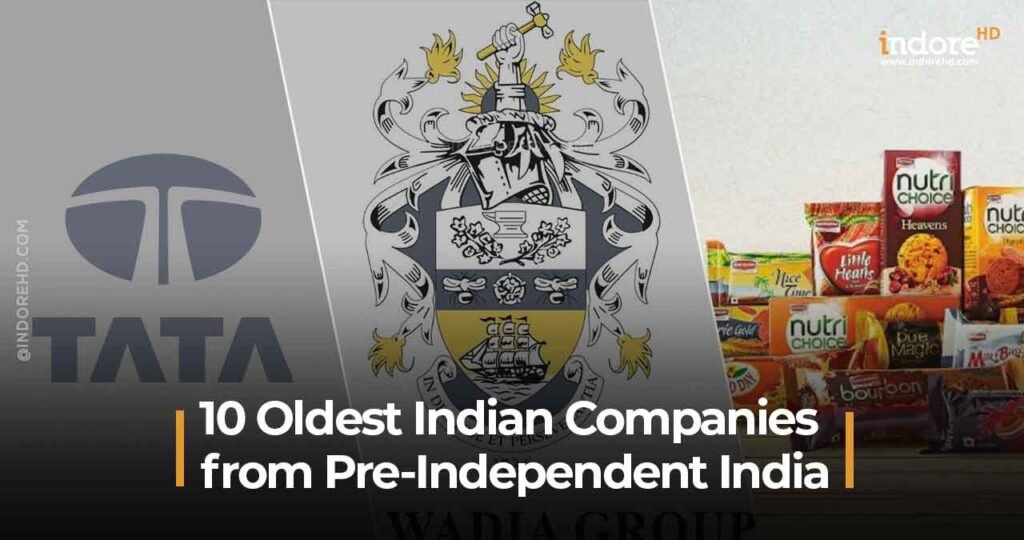India which is considered to be one of the largest startup hubs had businesses and enterprises which experienced strife and resistance from the British raj, the license raj of the early independent India, the liberalisation of the economy and the ups and downs of today’s India.
These companies have stood the test of time, some have been nationalised, diversified, acquired, and grown to reach the positions they are in today.
This independence day issue, we take a look at 10 of the oldest companies in India:
Wadia Group
Wadia Group is one of India’s oldest conglomerates which traces its roots back to 1736 when Parsi businessman Lovji Nusserwanjee Wadia secured contracts to build ships and docks with the British East India Company in Bombay. At present, the Group consists of several companies and now the group is present across multiple sectors including aviation, chemicals, healthcare, plantations, consumer products, and real estate.
Jessop and Company
Jessop and Company is India’s oldest engineering company, founded in 1788. The company was originally called Breen & Company. In 1820, Henry and George Jessop, acquired Breen and Company and merged it with Butterfly Company to create Jessop & Co. The company is said to have built India’s first iron bridge over the River Gomti, the first steam boat to have sailed on Indian waters and the country’s first steam road roller.
Britannia Industries
The company started its operations in a small house in Calcutta with an investment of Rs. 292. The company was founded by British businessmen in 1892, which was acquired by the Gupta brothers in 1897 and resumed operations under the name V.K Brothers. When Englishman C.H Holmes joined the company, it was named Britannia Biscuit Company. At present, the Wadia Group holds the majority stake in Britannia.
Aditya Birla Group
Aditya Birla Group is the third largest Indian private sector conglomerate which was founded in 1857 by Seth Shiv Narayan Birla. When Birla started trading in Cotton, the foundation of the business empire was laid in Pilani. After Birla’s grandson inherited the business, Birla diversified into areas such as fibers and textiles, cement and chemicals and aluminum. With an investment of Rs 5 million, Birla set up the Birla Brothers Limited in 1919 and in 1940, ventured into the automobile business when he set up Hindustan Motors.
Not only this, Birla also played an active role in India’s freedom struggle and was a close confidante of Mahatma Gandhi.
Allahabad Bank
Set up by three Europeans in 1865, Allahabad Bank is India’s oldest stock bank. This was during the nascent stages of trade and banking. By end of 19th century, the bank had branches at Jhansi, Lucknow, Bareilly, Nainital, Calcutta and Delhi. In 1920, the bank was acquired by P&O Banking Corporation and in 1927, the Chartered Bank of India, Australia and China acquired P&O Banking. In 1969, Allahabad Bank was nationalised by the Indian government.
The bank came out with an IPO in October 2002, thereby reducing the Government shareholding to 71.6 percent.
Tata Group
Tata Group is one of India’s largest conglomerates. The Tata Group was founded in 1868 by Jamsetji Nusserwanji Tata who is regarded as the ‘Father of Indian Industry.’
Jamsetji Tata dreamt of achieving four goals – setting up a hotel, an iron and steel company, a world-class learning institution and a hydro-electric plant. Over the decades that followed, the Tata group grew its repertoire of companies to include Western India’s first hydro plant, Tata Power, Tata Air Services, which operated post independence as Air India, Tata Motors, founded in 1945 as a locomotive manufacturer and Tata Consultancy Services.
Dabur
When illnesses such as cholera, malaria, plague, etc became rampant and deadly, it was S.K Burman, an Ayurvedic doctor based out of Kolkata, who used to concoct Ayurvedic medicines to combat these illnesses and travel into the interior villages to save people. He became known as Daktur Burman and this is how Dabur was founded; with an aim and vision of providing affordable healthcare for all. Today, Dabur is the largest Ayurvedic company in India.
Punjab National Bank
A desire for Swadeshi Bank with an Indian management grew in the mid 1800s as a new middle class slowly grew. During this time English companies showed reluctance to lend money to Indians and hence, the sentiment to fuel Indian dreams grew among Indians. This is how Punjab National Bank came into existence. The bank stood strong all this while until the Nirav Modi scam tarnished it’s image.
Nilgiris
One of the oldest supermarket chains in India, Nilgiris was set up in 1905 by Arumuga Mudaliar of Erode district, Tamil Nadu. A mail runner, Mudaliar saw the opportunity when he was flooded with orders to carry dairy and other food products. Mudaliar bought the butter business of an Englishman and set up a shop in 1905. Whilst it was initially specialized in dairy products, Mudaliar’s son, Chenniappan extended the store into a supermarket based on models he saw during his trips to the U.S and Europe.
Godrej & Boyce
In 1897, a young Ardeshir Godrej decided to give up his law practice and set up a lock company instead. In 1907, Godrej made its first Indian safes. The safes were known to be so strong that they even withstood the Bombay dockyard explosion of 1944.
